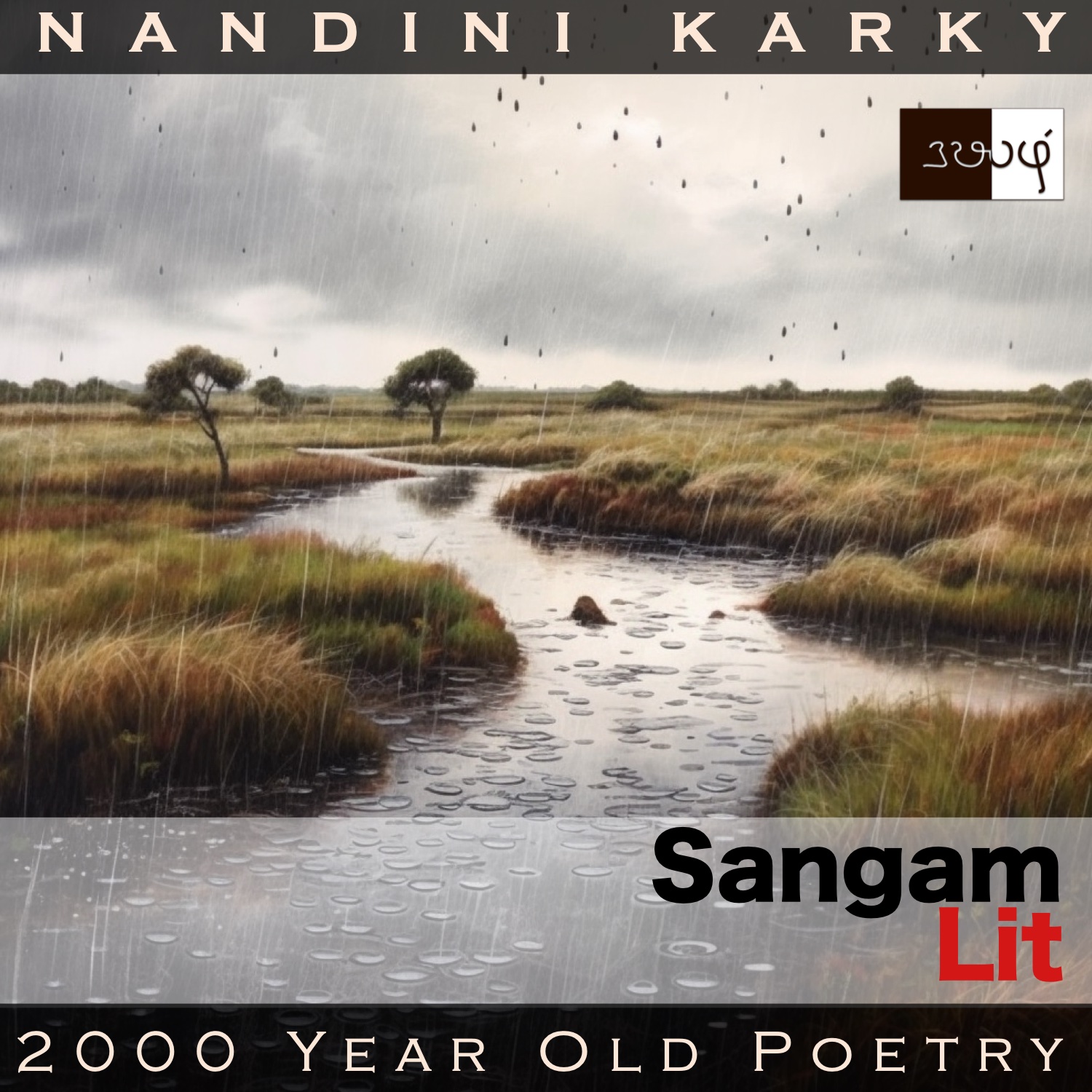Podcast: Play in new window | Download
Subscribe: Apple Podcasts | Spotify | Amazon Music | Android | iHeartRadio | TuneIn | RSS | More
In this episode, we listen to a nuanced differentiation in a king’s approach, as portrayed in Sangam Literary work, Puranaanooru 142, penned about the Velir King Vaiyaavi Koperum Bekan by the poet Paranar. The verse is situated in the category of ‘Paadaan Thinai’ or ‘King’s praise’ and responds to a criticism about the king.

அறு குளத்து உகுத்தும், அகல் வயல் பொழிந்தும்,
உறும் இடத்து உதவாது உவர் நிலம் ஊட்டியும்,
வரையா மரபின் மாரிபோல,
கடாஅ யானைக் கழல் கால் பேகன்
கொடைமடம் படுதல் அல்லது,
படைமடம் படான், பிறர் படை மயக்குறினே.
The setting of this song is what’s interesting here. As we saw in the previous verse, this King Bekan was known for offering his shawl to a peacock in an act of charity. So, in an assembly of poets, there seems to have risen a thought that this was a foolish thing to do. Upon hearing this, the poet Paranar responds to them with these words:
“To shed on dried-up ponds, to shower on expansive fields, and instead of only pouring purposefully so, to soak even salty swamps is the nature of rain that discerns not. Akin to that, Bekan, who owns raging elephants and wears warrior anklets, does not discern when it comes to his charity. However, when enemies assail him with their armies, he is most discerning of who he fights!”
Let’s delve deeper into the meaning herein. The poet conjures a simile from the outer world in response to that insult. He talks about how rain clouds do not decide that this is the right place to pour because there’s a dried up pond or because it’s a huge field of crops waiting for a shower. Instead, these rain clouds pour down not only on those ponds and fields but even on salty marsh land of no use to anyone. Exactly same is the generosity of Bekan, who gives not calculating who’s better, who deserves and who needs. It may seem foolish to some, but that’s the king’s nature like the life-giving rains, the poet implies. At the same time, the poet concludes by making it clear that the king is undiscerning only when it comes to giving to his subjects, whereas when you look at how he fights in the battlefield, he exercises utmost judgement in fighting only with those worthy and equal to him.
It seems to me as if the poet is answering in the past to a modern thought which says, ‘How you do something is how you do everything’! The poet tries to bring in a contrast within the king’s approach when it comes to charity versus courage and this contrast we have seen expressed in many different ways about kings we encountered this far. For instance, how sweet and pleasing these kings are, to those who come seeking to them, but how formidable and terrifying to those who dare to wage war against them.
Another thought is in how poets are making much ado about a king’s charity because this whole idea of one man as leader and owner of the land entire is a paradigm shift from the egalitarian life of hunter-gatherers, where everything belonged to everyone. Food production and pockets of wealth seems to have shifted the power to one or few and when they then give away to their subjects what they have got because of those very subjects, it’s celebrated as an extraordinary thing, making the king larger than life. Isn’t it the same thing that politicians of today have to remember? All the schemes of welfare they do comes from people’s money and the power given to them by those very people and shouldn’t it be seen that it’s not the greatness of their heart that brings to reality these schemes but as their moral obligation to the society they serve!




Share your thoughts...